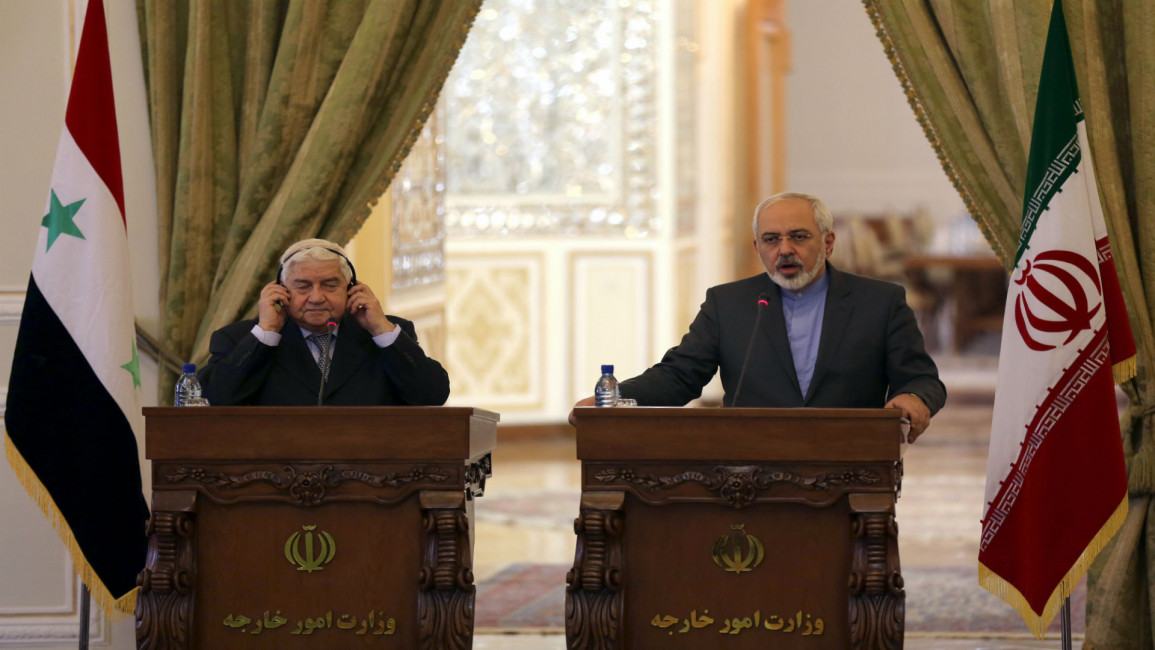
An Iran nuclear deal should worry Syria's Assad
Almost a year ago, Iran's Deputy Foreign Minister, Hossein Amir Abdul Abdollahian, stressed that Iran will not allow Syrian President Bashar Al-Assad's regime to fall.
On Monday, Abdollahian said that Tehran "does not insist that Assad remain the life-long president in Syria". The change in Iran's position on Assad can be understood in the context of the war in Syria on one hand and the nuclear deal on the other.
After four years of fierce battles, the Syrian regime forces grew weary and became more reliant on Iran and its proxies.
Despite the costly involvement, Iran has lifted Syria's Assad up after every military setback. This was going on while Iranian diplomats were on a historical diplomatic mission to seal a nuclear deal with the West.
The pursuit of a comprehensive and sustainable agreement means that world powers cannot isolate the ongoing political conflicts in the Middle East from the terms of agreement; even if it meant that political terms remain confidential.
Despite US denial, it became clear to Iran and its regional opponents that the deal has significant political implications and opportunities. As Iran's Deputy Foreign Minister pointed out to CNN Monday, a nuclear deal "can leave a positive impression of the US that can lead to further engagement and interaction".
Assad as Iran's ransom
Iran's regional rivals, mainly Saudi Arabia and Israel, have expressed their disapproval of the nuclear agreement's framework. Both countries see the deal as a legitimisation of Tehran's regional ambition and a threat to their national and regional interests.
| Abdollahian said that Tehran "does not insist that Assad remain the life-long president in Syria". |
Iran's rivals have enough resources to turn Obama's diplomatic success to a foreign policy nightmare. Acknowledging that, the US President invited Gulf leaders to Washington in May to reassure them that the US stands by their side despite historical deal with Iran.
But all the reassuring rhetoric cannot overshadow the significance of the nuclear deal and its imminent political implications. The West is being asked to take tangible steps towards reassurance.
The most critical reassurance can come from Syria. WikiLeaks' Saudi cables reveal that the kingdom wants to overthrow Assad's regime "at any cost". The documents show how fearful the Saudi government is from Assad's revenge if he manages to remain in power after their staunch support for the Syrian opposition.
In that pursuit, Iran will be asked, as part of sustaining the deal, to allow a political transition in Syria without Assad. This is reflected in Obama's statement on Monday, where he firmly reiterated that the only way to defeat IS and end Syria’s civil war is through a government without Bashar al-Assad.
Letting go of Assad doesn't mean Iran won't have a stake in Syria's future. The geopolitical signifiance of Syria, connecting Hizballah in Lebanon with Iraq and Iran, means that there is a limit to how far Iran is ready to withdraw from Syria.
In other words, the removal of Assad under the consent of Tehran won't necessarily facilitate Syria's political transition. But it can work as a diplomatic facade for an unshakable Iranian ambition in the Middle East.


![Minnesota Tim Walz is working to court Muslim voters. [Getty]](/sites/default/files/styles/image_684x385/public/2169747529.jpeg?h=a5f2f23a&itok=b63Wif2V)




